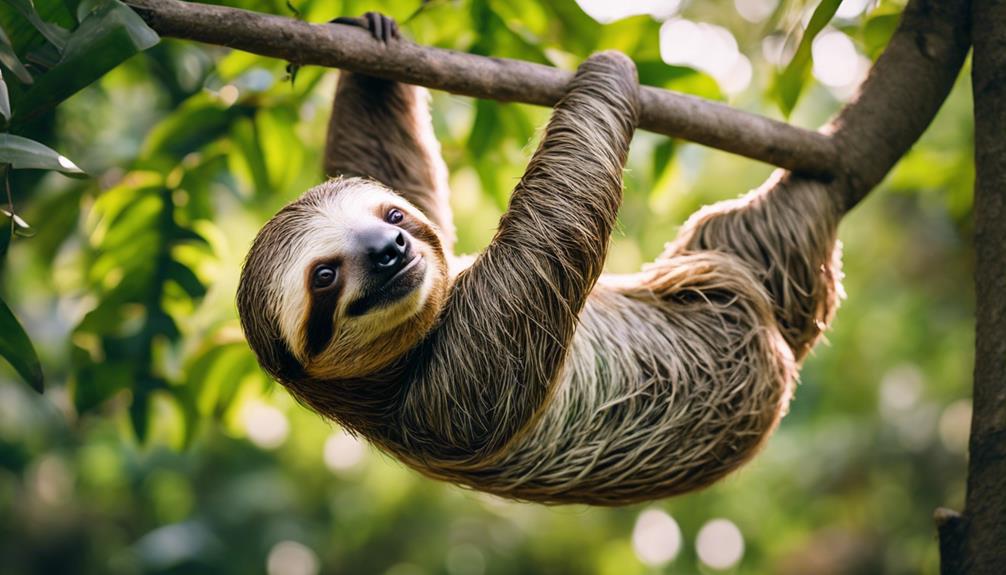Have you ever heard tales of unexpected encounters with sloths turning sour? The question of whether sloths can be dangerous or attack humans might linger in your mind.
While these creatures are known for their slow movements and peaceful demeanor, there are underlying factors to take into account. By exploring their behaviors and responses in certain situations, you will gain a better insight into the potential risks involved.
Stay tuned to uncover the truth behind sloth interactions and to understand how to approach these fascinating animals with caution and respect.
Sloth Behavior and Defense Mechanisms
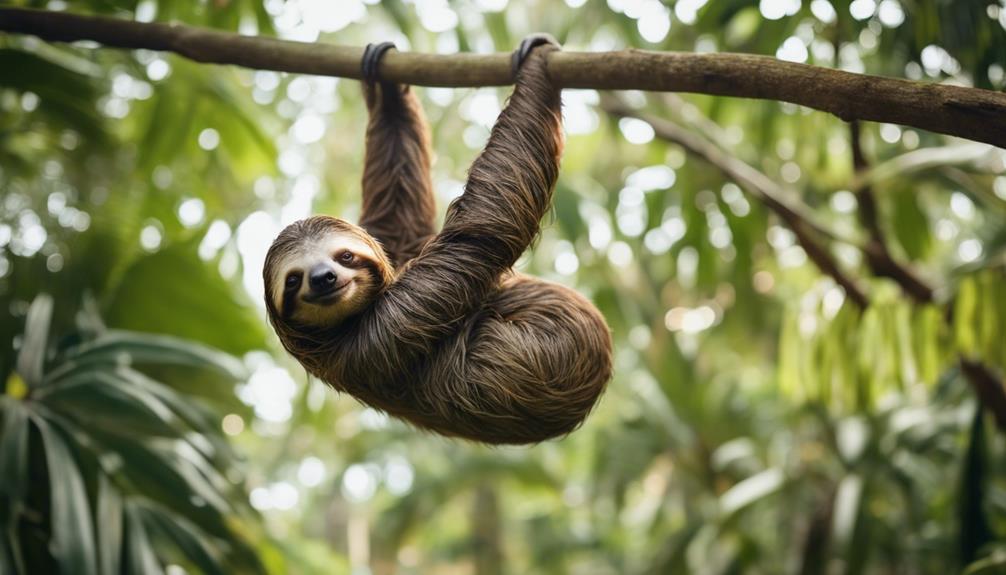
When encountering potential threats, sloths rely on their large claws and sharp teeth for self-defense. Despite their peaceful nature, sloths possess the strength equivalent to multiple people in a given situation. They don't naturally attack humans but may become agitated and defensive if provoked. It's essential to emphasize that sloths aren't aggressive creatures by default.
In the face of danger, sloths may exhibit defensive behaviors, showcasing their ability to protect themselves when necessary. While they prefer solitude and tranquility, sloths can become defensive if they feel threatened. Understanding and respecting their boundaries is vital to avoid any potential conflicts.
Remember that sloths aren't inherently harmful animals; their defensive mechanisms are simply a means of survival. By observing these fascinating creatures from a respectful distance and refraining from provoking them, you can coexist peacefully with these unique inhabitants of the forest.
Potential Harm From Sloth Attacks
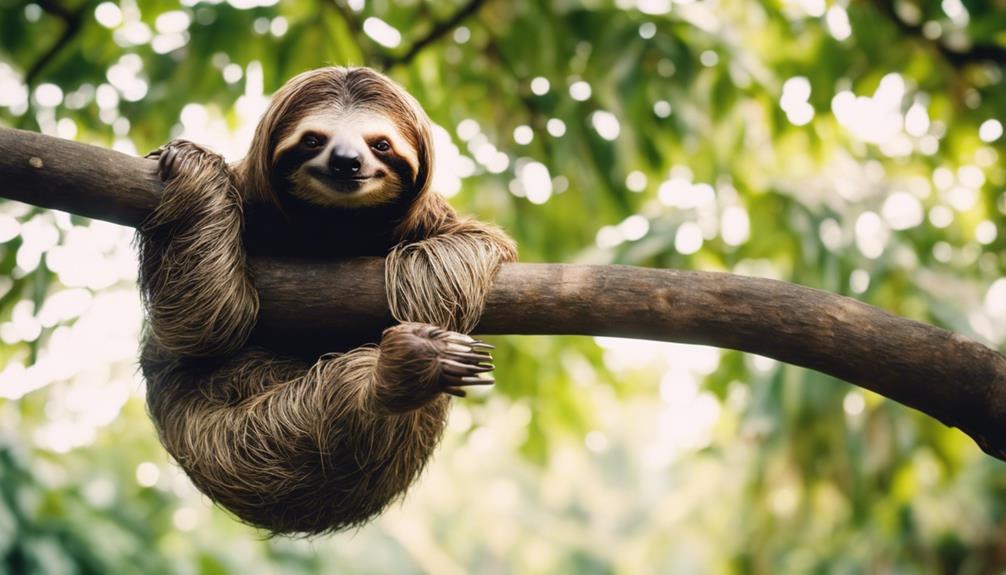
Experiencing a sloth attack can result in significant injuries due to their sharp claws and teeth. While sloths are typically peaceful creatures, they possess the means to defend themselves when threatened. In the rare event of an attack, their sharp claws and teeth can cause deep wounds, leading to infections and potential broken limbs. Sloths, despite their slow reputation, can surprisingly move fast when feeling threatened, potentially leaving lasting scars on those they attack.
Healing from a sloth bite can be a lengthy process, taking months to fully recover. It's crucial to note that sloths aren't venomous and don't use poison for hunting; instead, they rely on their physical defenses. Sloths, preferring solitude, may react aggressively if touched or provoked, emphasizing the importance of respecting their space to avoid any potential harm.
Risks of Keeping Sloths as Pets
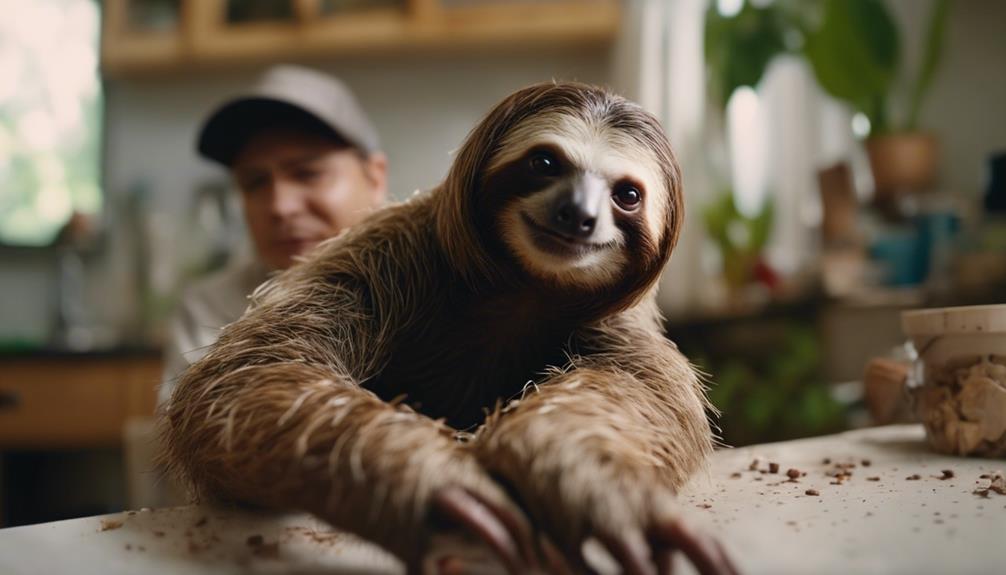
Moving from discussing the potential harm caused by sloth attacks, considering the risks of keeping sloths as pets is essential for understanding the dangers associated with domesticating these animals. Sloths, despite their peaceful nature, aren't suitable for domestication. Their lack of evolution for cohabitation with humans makes them dangerous pets, especially when adopted as mature individuals. Sloths may attack if touched or provoked, as they prefer solitude and can become defensive when necessary. Understanding sloth behavior is critical to prevent conflicts with humans and guarantee safety when interacting with these animals.
It is important to recognize that sloths are solitary creatures that prefer to be left undisturbed in their natural habitat. While they aren't naturally aggressive, sloths can defend themselves if needed. Hence, it's advisable to avoid keeping sloths as pets and to respect their natural behavior by refraining from touching or provoking them. By acknowledging the risks associated with domesticating sloths, you can make informed decisions regarding their care and make sure the well-being of both humans and these unique animals.
Safety Precautions Around Wild Sloths
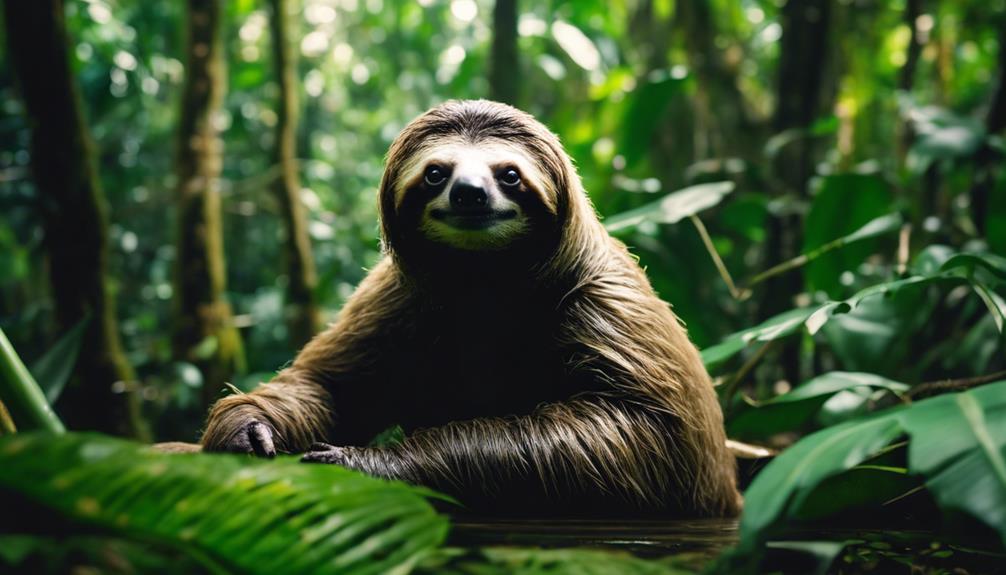
Practicing caution and awareness is important when encountering wild sloths to guarantee your safety and respect their natural behavior. When near these animals, keep a safe distance to avoid startling or provoking them. Remember that sloths have sharp claws and teeth that can cause injuries if they feel threatened. Be mindful of their space and avoid trying to touch or interact with them physically.
Additionally, refrain from making sudden movements or loud noises that could agitate the sloths. Stay calm and move slowly if you find yourself in close proximity to one. It's important to understand that while sloths are generally peaceful creatures, they can become defensive when they feel endangered. By being mindful of their behaviors and signals, you can prevent any potential harm to yourself and the sloths.
Respecting their natural habitat and behavior is key to ensuring a safe encounter with wild sloths. Keeping a respectful distance and observing them from afar allows you to appreciate these fascinating animals without putting yourself at risk.
Recommendations for Interacting With Sloths
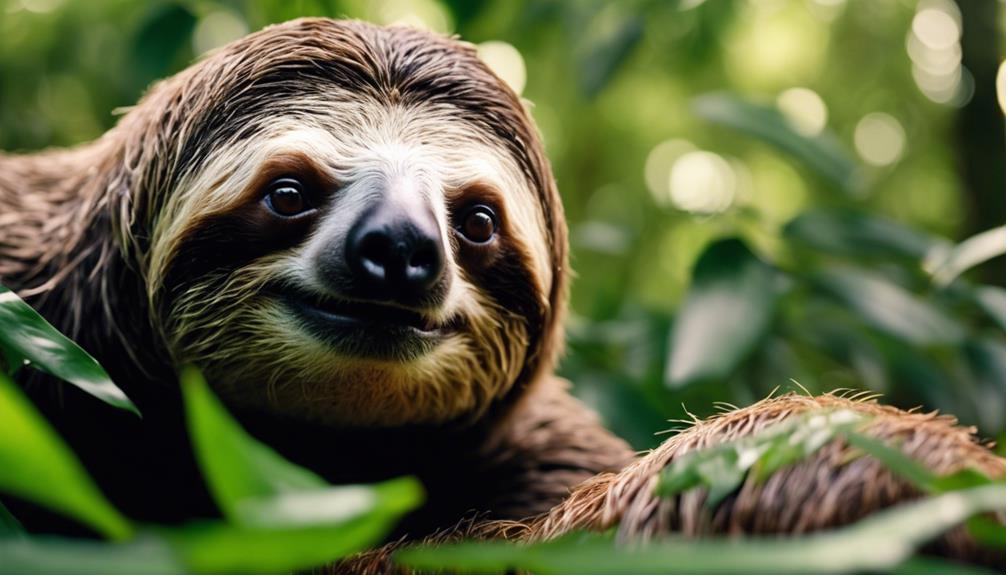
For safe interactions with sloths, maintain a respectful distance to avoid potential conflicts. Sloths are solitary creatures that prefer minimal disturbance in their natural habitat. When observing sloths, keep a safe distance and refrain from approaching or touching them. Remember that sloths may become defensive if they feel threatened or provoked. Avoid sudden movements or loud noises that could startle them. It's important to respect their space and behavior to prevent any unwanted reactions.
If you encounter a sloth in the wild, appreciate them from afar without disrupting their activities. Don't attempt to feed them or try to interact closely. Remember that sloths aren't pets and shouldn't be treated in this way. By understanding and respecting their need for solitude, you can enjoy observing these fascinating animals without putting yourself or the sloth in harm's way. Your admiration for sloths can be best expressed through responsible and non-intrusive observation.

Erzsebet Frey (Eli Frey) is an ecologist and online entrepreneur with a Master of Science in Ecology from the University of Belgrade. Originally from Serbia, she has lived in Sri Lanka since 2017. Eli has worked internationally in countries like Oman, Brazil, Germany, and Sri Lanka. In 2018, she expanded into SEO and blogging, completing courses from UC Davis and Edinburgh. Eli has founded multiple websites focused on biology, ecology, environmental science, sustainable and simple living, and outdoor activities. She enjoys creating nature and simple living videos on YouTube and participates in speleology, diving, and hiking.
🌿 Explore the Wild Side!
Discover eBooks, guides, templates and stylish wildlife-themed T-shirts, notebooks, scrunchies, bandanas, and tote bags. Perfect for nature lovers and wildlife enthusiasts!
Visit My Shop →
